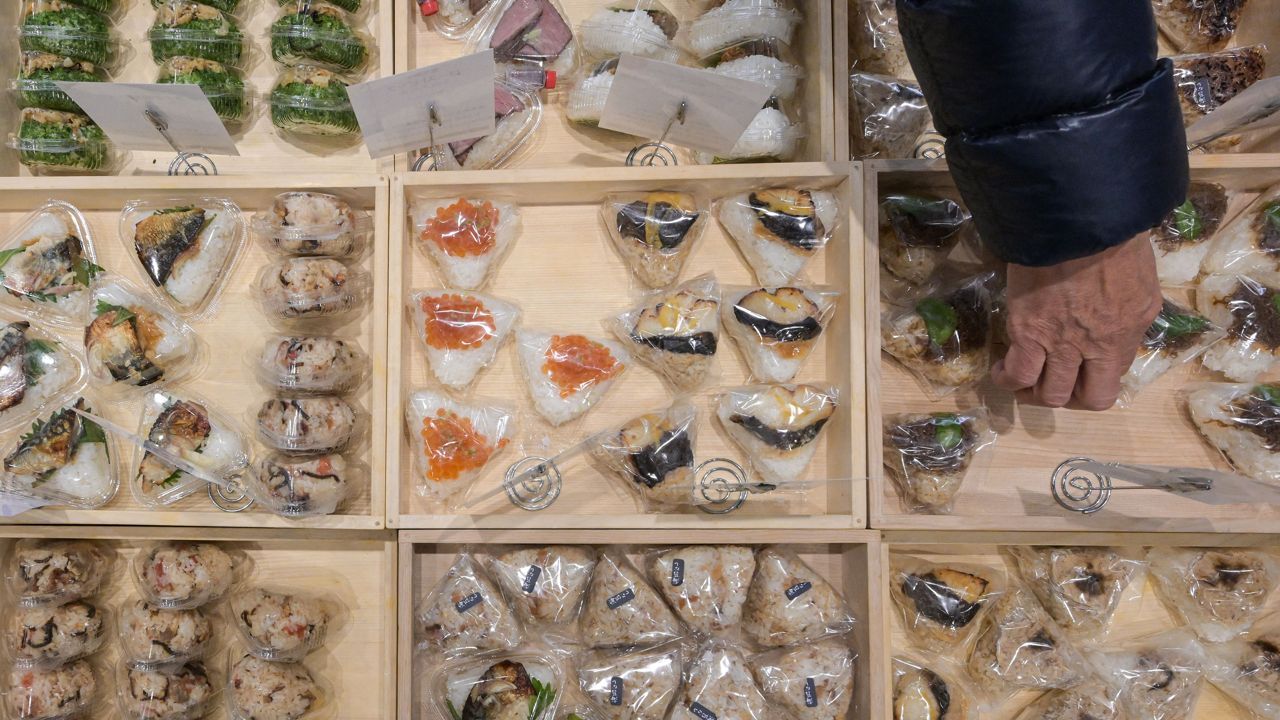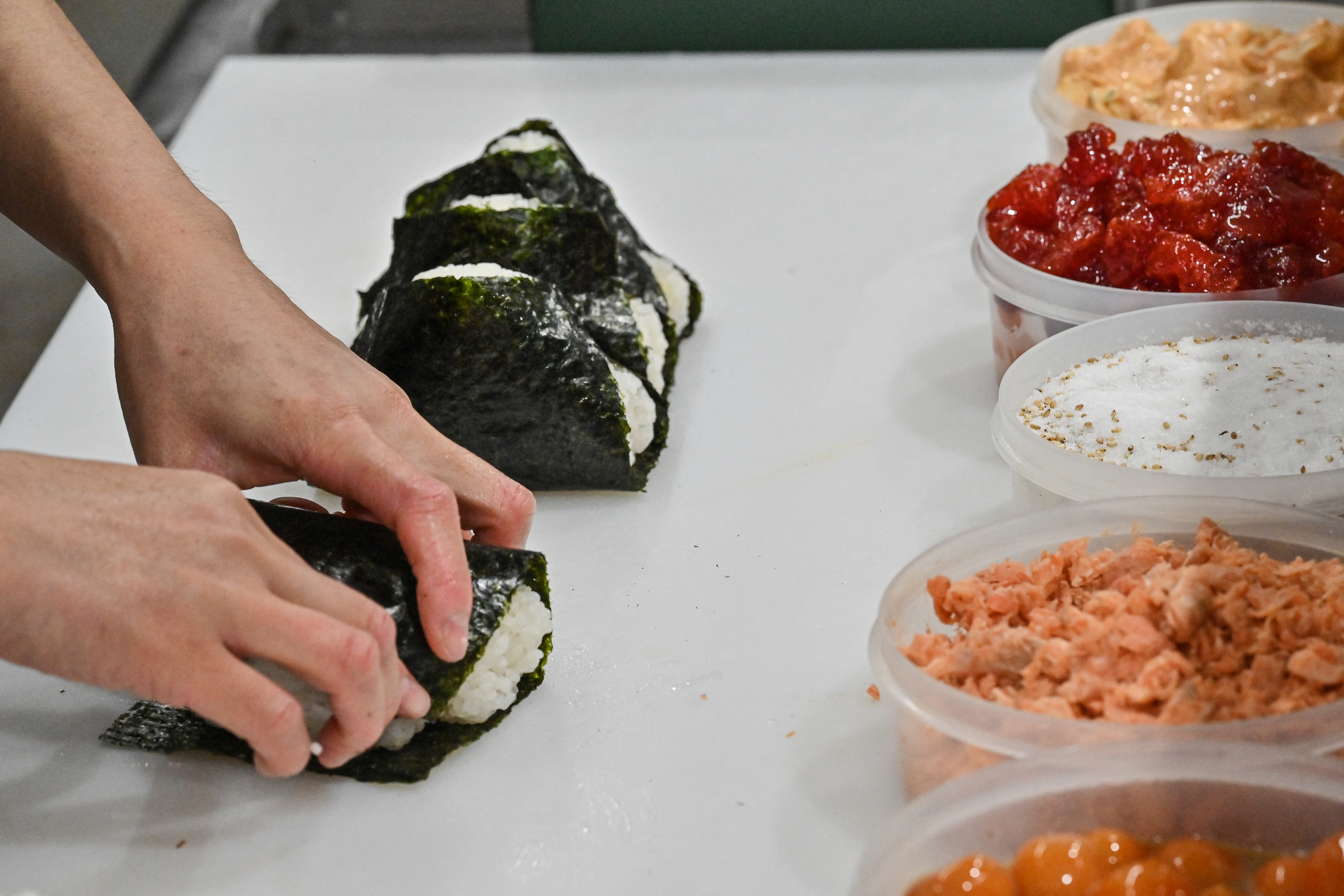Japan's humble rice balls elevate image of 'onigiri' abroad
'Onigiri,' a Japanese dish made from white rice, emerges as the latest trendy snack

Wrapped in seaweed and stuffed with savory fillings, "onigiri" rice balls are shaking off their reputation as a cheap and uninspiring snack in Japan and attracting food lovers abroad.
Onigiri dates back to the first century A.D. when archeologists discovered a handful of hard-cooked rice, thought to be primitive versions of onigiri.
Developed as rations for soldiers or portable meals for travelers, onigiri is an important part of Japanese food culture.
Photos on social media, growing demand for affordable lunches and a surge in tourism to Japan are drawing people to the humble onigiri.
"No one used to come between lunch and dinner, but now customers queue non-stop," Yumiko Ukon, 71, who runs the half-century-old shop, told Agence France-Presse (AFP).

Ukon, whose team makes about 60 different types of onigiri, said some have an eight-hour wait, with traditional fillings such as pickled plums or more unusual items such as bacon in puffed soy sauce.
Onigiri Bongo has only nine stalls but sells around 1,200 rice balls every day.
"When I was young, onigiri was something made at home," says Ukon. "Now people buy onigiri or go out to eat onigiri."
Onigiri has long been popular as a food on the go in Japan, a country where they were once taken to the battlefield by samurai for over a thousand years.
These quick snacks are ubiquitous, available in convenience stores on almost every street corner.
Japanese cuisine, which stands out with its deep-rooted and innovative attitude in culinary culture as in many other fields, was added to the list of "Intangible Cultural Heritage of Humanity" by UNESCO in 2013.
Source: Newsroom & Agence France-Presse






